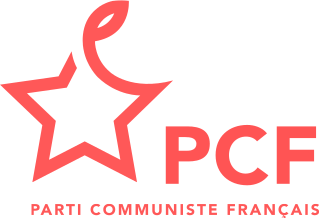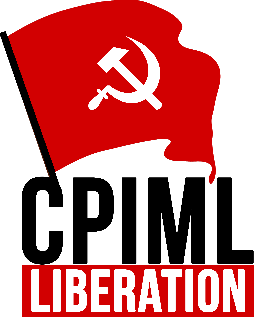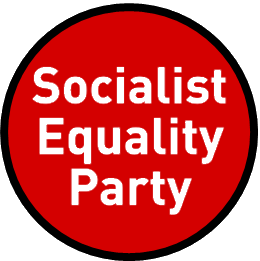
The French Communist Party is a communist party in France. The PCF is a member of the Party of the European Left, and its MEPs sit with The Left in the European Parliament – GUE/NGL group.

The Communist Party of Australia (CPA), known as the Australian Communist Party (ACP) from 1944 to 1951, was an Australian communist party founded in 1920. The party existed until roughly 1991, with its membership and influence having been in a steady decline since its peak in 1945. Like most communist parties in the West, the party was heavily involved in the labour movement and the trade unions. Its membership, popularity and influence grew significantly during most of the interwar period before reaching its climax in 1945, where the party achieved a membership of slightly above 22,000 members. Although the party did not achieve a federal MP, Fred Paterson was elected to the Parliament of Queensland at the 1944 state election. He won re-election in 1947 before the seat was abolished. The party also held office in over a dozen local government areas across New South Wales and Queensland.
Socialist Alliance is a socialist political party and activist organisation in Australia, founded in 2001 as an alliance of various socialist organisations and activists, initiated by the Democratic Socialist Perspective and the International Socialist Organisation.

The Democratic Socialist Perspective (DSP) was an Australian socialist political group. It was founded in 1972 as the Socialist Workers League (SWL), changing its name to the Socialist Workers Party (SWP) a few years later. In the early 1990s it was once again renamed, as the Democratic Socialist Party, and in 2003 it became the Democratic Socialist Perspective.

The Communist Party of India (Marxist) (abbreviated as CPI(M)) is a communist political party in India. It is the largest communist party in India in terms of membership and electoral seats, and one of the national parties of India. The party was founded through a splitting from the Communist Party of India in 1964 and it quickly became the dominant faction.

The Communist Party of India (Marxist–Leninist) Liberation is a communist political party in India. The party is represented in Bihar and Jharkhand Legislative Assemblies. Since 2023, the party is also a member of the INDIA electoral alliance.

Revolutionary Socialist Party (RSP) is a communist party in India. The party was founded on 19 March 1940 by Tridib Chaudhuri and has its roots in the Bengali liberation movement Anushilan Samiti and the Hindustan Socialist Republican Army.

John Smith "Jock" Garden was an Australian clergyman, trade unionist and politician. He was one of the founders of the Communist Party of Australia.
Communist Workers' Party – For Peace and Socialism is a communist party in Finland. It was founded in 1988 to secure the existence of an independent Marxist–Leninist party. Since it was founded, it has been re-registered and subsequently de-registered multiple times, since its founding, it has failed to gain any seats in the Parliament of Finland. The party has been de-registered since 2019.

Laurence Aarons, known as Laurie Aarons, was an Australian Communist leader, was National Secretary of the Communist Party of Australia (CPA) from 1965 to 1976.

Lee Rhiannon is a former Australian politician who was a Senator for New South Wales between July 2011 and August 2018. She was elected at the 2010 federal election, representing the Australian Greens. Prior to her election to the Federal Parliament, Rhiannon was a Greens NSW member of the New South Wales Legislative Council between 1999 and 2010.
Peter Dudley Symon was the General Secretary of the Socialist Party of Australia from 1971 to 2008.

General elections were held in India between 1 and 10 March 1971 to elect members of the fifth Lok Sabha. They were the fifth general elections since independence in 1947. The 27 Indian states and union territories were represented by 518 constituencies, each with a single seat. Under the leadership of Indira Gandhi, the Indian National Congress (R) led a campaign which focused on reducing poverty and won a landslide victory, overcoming a split in the party and regaining many of the seats lost in the previous election.

The Socialist Equality Party (SEP) is an unregistered Trotskyist political party in Australia. The SEP was established in 2010 as the successor party to the Socialist Labour League, which was founded in 1972 as the Australian section of the International Committee of the Fourth International (ICFI).
Eric Aarons was a member of the third of four generations of the Aarons family who played leading roles in the Communist Party of Australia (CPA).
Patrick Martin Clancy was an Australian trade unionist and Communist.
Socialism in Australia dates back at least as far as the late-19th century. Notions of socialism in Australia have taken many different forms including utopian nationalism in the style of Edward Bellamy, the democratic socialist reformist electoral project of the early Australian Labor Party (ALP), and the revolutionary Marxism of parties such as the Communist Party of Australia.

The Communist Party of Britain (CPB) is a communist party in Great Britain which emerged from a dispute between Eurocommunists and Marxist-Leninists in the Communist Party of Great Britain in 1988. It follows Marxist-Leninist theory and supports what it regards as existing socialist states, and has fraternal relationships with the ruling parties in Cuba, China, Laos, and Vietnam. It is affiliated nationally to the Cuba Solidarity Campaign and the Venezuela Solidarity Campaign. It is a member of the International Meeting of Communist and Workers' Parties, together with 117 other political parties. After the fall of the Soviet Union, the party was one of two original British signatories to the Pyongyang Declaration.

Eurocommunism was a trend in the 1970s and 1980s within various Western European communist parties, which said they had developed a theory and practice of social transformation more relevant for Western Europe. During the Cold War, they sought to reject the influence of the Soviet Union and the Communist Party of the Soviet Union. The trend was especially prominent in Italy, Spain, and France.

General elections were held in Nepal in two phases on 26 November and 7 December 2017 to elect the 275 members of the fifth House of Representatives, the lower house of the Federal Parliament of Nepal.















